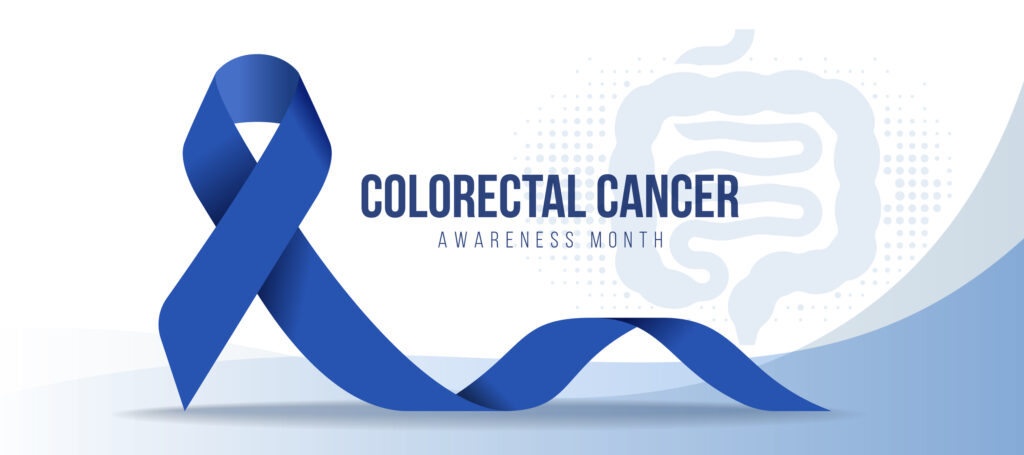
Have You Been Screened for Colon Cancer?
According to the American Cancer Society, colorectal cancer (CRC) is the second most common cause of cancer death, in both men and women, in the United States and is the leading cause of death in men younger than 50 years. And, according to new research, CRC cases are rising, particularly among those 55 and younger.
March is National Colorectal Cancer Awareness Month, which is an opportunity to spotlight this disease and inspire more people to get checked starting at age 45. There are two important reasons why getting checked matters:
- Screening can find the warning signs of colon and rectal cancer, letting doctors take action to prevent the disease.
- Screening can also find colorectal cancer early, when treatment is most effective.
One in 24 people will be diagnosed with CRC in their lifetime, and more than 150,000 people are diagnosed each year. Unfortunately, CRC often develops without any symptoms until the cancer is more advanced. Some symptoms can be dismissed or ignored such as:
- Blood in the stool.
- Change in bowel habits such as constipation or diarrhea.
- Belly pain or cramps.
- Unintentional weight loss.
There are ways to reduce your risk for CRC, especially by managing your diet and activity.
- Being overweight or obese increases your risk. Staying at a healthy weight can lower your risk.
- Being more active lowers your risk for cancer or polyps. Regular moderate to vigorous activity can lower the risk. Increasing the amount and intensity of physical activity may help reduce your risk.
- Diets that are high in vegetables, fruits, and whole grains may lower your risk.
- Avoid or limit red or processed meats. There are studies that have shown a link to these meats and increased colorectal cancer risk.
In more positive news, CRC is highly preventable with screening. With CRC on the rise, the age for being screened was lowered to age 45. People at higher risk may need to get screened earlier due to other conditions such as:
- Inflammatory bowel diseases such as Crohn’s disease or ulcerative colitis.
- A personal or family history of colorectal cancer OR colorectal polyps.
- Genetic syndromes such as familiar adenomatous polyposis (FAP) or hereditary non-polyposis colorectal cancer (Lynch syndrome).
- An abnormal/positive stool-DNA or FIT result will require a colonoscopy.
Regular screening is one of the most powerful tools for preventing CRC. A screening exam will help find precancerous polyps which can be removed before they turn into a cancer. Regular screening, beginning at age 45, is the key to preventing CRC and finding it early when treatment is most successful. If you are age 45 or older, you should be screened for colorectal cancer. Talk to your health care provider about which type of screening test is a good option for you. The most important thing is to be tested!
American Cancer Society. Cancer Statistics Center. http://cancerstaticscenter.cancer.org. Accessed on March 2, 2023.
Lin JS, Perdue LA, Henrikson NB, Bean SI, Blasi PR. Screening for Colorectal Cancer: Updated Evidence Report and Systematic Review for the US Preventive Services Task Force. JAMA. 2021;325(19):1978–1998. doi:10.1001/jama.2021.4417
American Cancer Society. Guideline for colorectal cancer screening: For people at average risk. Available at: https://www.cancer.org/cancer/colon-rectal-cancer/detection-diagnosis-staging/acs-recommendations.html (Accessed on March 3, 2023).
